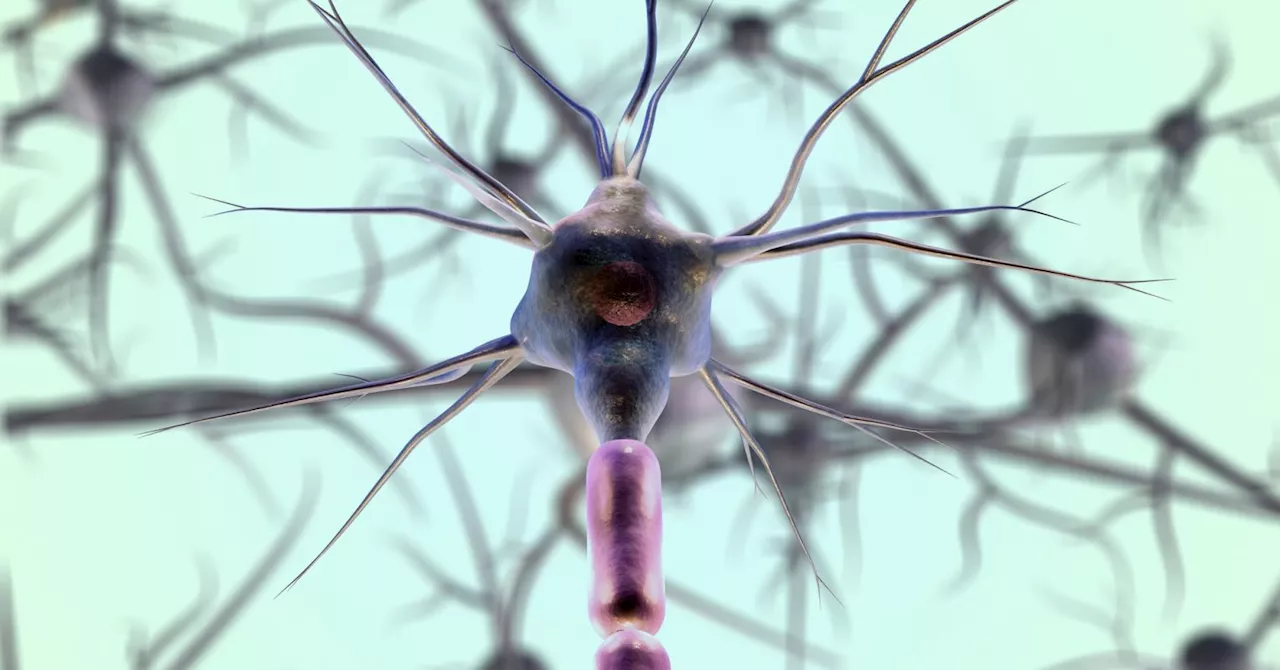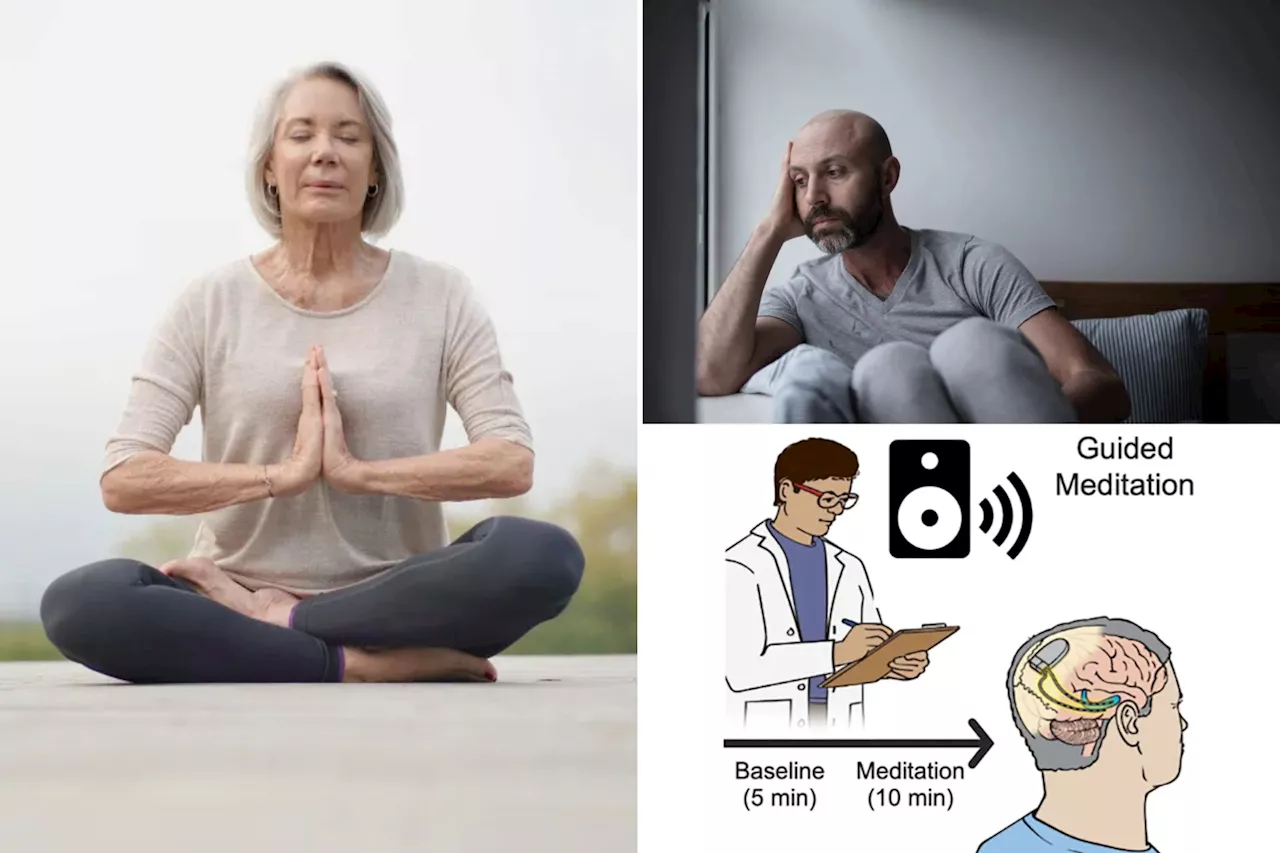A new study using implanted electrodes in epilepsy patients reveals how meditation influences brainwave patterns in areas responsible for emotions and memory, shedding light on its calming effects.
found that meditation influences key regions of your brain responsible for emotional regulation and memory, offering new insights into why it works so well at calming the mind., with its earliest roots tracing back to Vedic India, where it was a cornerstone in Ayurveda medicine. Over time, it became a cornerstone of various religious and spiritual practices throughout the East.
“Meditation is noninvasive, widely accessible, and doesn’t require specialized equipment or medical resources, making it an easy-to-use tool for improving mental well-being,” said Saez, though he stressed that meditation shouldn’t replace traditional therapy. The Mount Sinai team is planning to conduct follow-up studies that will dive deeper into the relationship between brain activity and mental health outcomes. Their next step is gathering more data on the long-term impact of meditation.
There's no Presidents Day like the present! The 48+ best Presidents Day sales we found so far in 2025
Meditation Brain Activity Emotional Regulation Memory Epilepsy
United States Latest News, United States Headlines
Similar News:You can also read news stories similar to this one that we have collected from other news sources.
 Meditation induces changes in deep brain areas associated with memory and emotional regulationFindings provide insight about its potential as a noninvasive therapy.
Meditation induces changes in deep brain areas associated with memory and emotional regulationFindings provide insight about its potential as a noninvasive therapy.
Read more »
 Tezos Sees Growth in User Base and NFT Activity Despite Decline in Overall Network ActivityTezos Layer 1 transaction fee revenue surged in Q4 2024, driven by Etherlink. While overall network activity decreased, daily active addresses increased, indicating a growing user base. Web3 gaming and NFT activity thrived on Etherlink, attracting numerous new projects.
Tezos Sees Growth in User Base and NFT Activity Despite Decline in Overall Network ActivityTezos Layer 1 transaction fee revenue surged in Q4 2024, driven by Etherlink. While overall network activity decreased, daily active addresses increased, indicating a growing user base. Web3 gaming and NFT activity thrived on Etherlink, attracting numerous new projects.
Read more »
 Heavy Cannabis Use Linked to Reduced Brain Activity in Working Memory TasksA new study, the largest of its kind, reveals that heavy cannabis use is associated with reduced brain activity during working memory tasks, suggesting that the negative consequences of heavy cannabis use may be more significant than previously thought. Researchers studied around 1,000 young adults, using MRI to monitor brain activity. They found that 63% of heavy cannabis users (defined as those who had used cannabis over 1,000 times in their lifetime) demonstrated reduced brain activity during working memory tasks, leading to poorer performance. While the study cannot definitively prove causation, it highlights the potential cognitive impacts of heavy cannabis use.
Heavy Cannabis Use Linked to Reduced Brain Activity in Working Memory TasksA new study, the largest of its kind, reveals that heavy cannabis use is associated with reduced brain activity during working memory tasks, suggesting that the negative consequences of heavy cannabis use may be more significant than previously thought. Researchers studied around 1,000 young adults, using MRI to monitor brain activity. They found that 63% of heavy cannabis users (defined as those who had used cannabis over 1,000 times in their lifetime) demonstrated reduced brain activity during working memory tasks, leading to poorer performance. While the study cannot definitively prove causation, it highlights the potential cognitive impacts of heavy cannabis use.
Read more »
 Personal Perspective: When brain activity is impaired why not treat it directly?Personal Perspective: The heart of treating brain injury may be treating the injured neurons and the resultant mental states, both.
Personal Perspective: When brain activity is impaired why not treat it directly?Personal Perspective: The heart of treating brain injury may be treating the injured neurons and the resultant mental states, both.
Read more »
 Opioid Activity in the Brain May Be Linked to Anorexia NervosaA new study from Turku PET Centre in Finland suggests that changes in the functioning of opioid neurotransmitters in the brain could be a key factor in the development of anorexia nervosa. Researchers found that the brain's opioidergic tone was elevated in patients with anorexia compared to healthy individuals. This finding supports the idea that these molecules may play a role in regulating both appetite loss and increase.
Opioid Activity in the Brain May Be Linked to Anorexia NervosaA new study from Turku PET Centre in Finland suggests that changes in the functioning of opioid neurotransmitters in the brain could be a key factor in the development of anorexia nervosa. Researchers found that the brain's opioidergic tone was elevated in patients with anorexia compared to healthy individuals. This finding supports the idea that these molecules may play a role in regulating both appetite loss and increase.
Read more »
 Brain Activity Suggests Images Are Still There, Even for Those Without a 'Mind's Eye'A new study suggests that the brains of people with aphantasia, who lack the ability to visualize mental images, may still process visual information differently than people who can 'see' things in their minds.
Brain Activity Suggests Images Are Still There, Even for Those Without a 'Mind's Eye'A new study suggests that the brains of people with aphantasia, who lack the ability to visualize mental images, may still process visual information differently than people who can 'see' things in their minds.
Read more »
